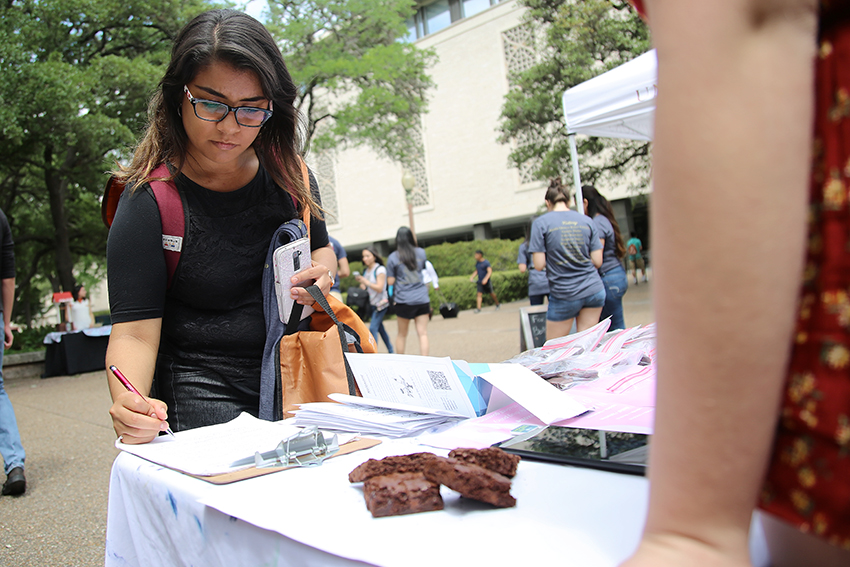The organization Students for Sensible Drug Policy sold $1 brownies and made jokes in honor of “4/20” Thursday to raise awareness for the University’s medical amnesty program for drug overdoses.
SSDP held their “4/20 Praise It Bake Sale” to raise money for their organization and raise awareness for the medical amnesty program the University implemented last year. The system-wide policy protects students from disciplinary action when they call for help in drug overdose or alcohol related medical emergencies.
Following the passage of Student Government Assembly Resolution 5 last April, the University expanded its alcohol amnesty program to include drug overdose. This policy protects students who call 911 for help from University disciplinary action regardless of the legality of the drugs used.
Under the policy, the University will not punish students for using illegal drugs or alcohol, but students can still be prosecuted by local or state law enforcement.
SSDP President Andrew Hood said many of the students he has spoken to did not know about the policy, so he wants as many people as possible to know in case they are ever caught in a dire situation.
“This ridiculous bake sale is here to get people’s attention, so we can yell at them about medical amnesty,” chemical engineering senior Hood said. “You save someone’s life from making a phone call, so why would we punish you for doing so?”
Regardless of whether someone bought a brownie, SSDP members tried to hand out as many of their “Harm Reduction and Substance Safety” pamphlets as they could. The pamphlets detailed the medical amnesty policy, signs of an opioid overdose and how to give someone naloxone, a drug that can counteract a life-threatening opioid overdose.
“If someone is on the floor blue, and you’re freaking out and on the phone with an ambulance, that’s where medical amnesty steps in and is like, ‘OK, you’re not going to be expelled for this,’” Hood said.
SSDP advocacy chair Ian Sims said part of the money they collect from the bake sale will help pay for drug test kits. These kits allow people to analyze drugs such as acid and MDMA, a psychoactive stimulant that is potentially lethal in impure forms.
“A lot of times dealers cut MDMA with other substances, so oftentimes people don’t know what they’re taking,” Sims said. “It’s not uncommon to hear (about) people dying because they took MDMA without knowing its purity.”
However, University-sponsored organizations are barred from giving out such kits, according to the University General Information Catalog. Members of SSDP plan to give them out on their own time, according to Sims.
After seeing a poster advertising the bake sale, Helen Smith, a math, Plan II and English fifth-year, said she decided to stop by because she was curious about the amnesty program. Smith said she knew students when she lived on campus who would’ve benefited from a policy like this.
“It’s nice for people to have peace of mind to just live and worry about the emergency in emergency situations rather than later ramifications,” Smith said. “So students don’t have to be afraid of death based on a mistake.”





















